Minimum query is 3 letters.
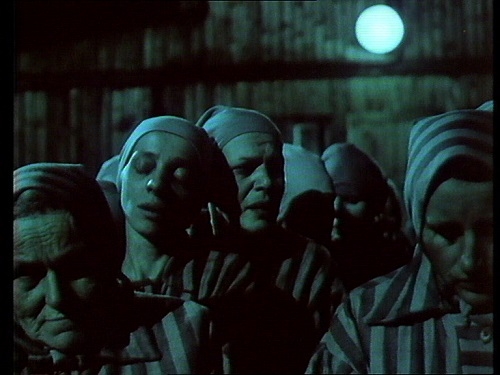
IN AND OUT OF THE CZECHOSLOVAK NEW WAVE
TOURING RETROSPECTIVE
Starting August 2, 2019
CAUGHT BY NIGHT (Zastihla mě noc, 1985)
CAUGHT BY NIGHT
Zastihla mě noc, 1985, 130min, Czechoslovakia
imported archival print
Czech with English subtitles
with Jana Riháková, Kateřina Urbancová, Jana Brejchová
Born to Jewish parents in Kežmarok in modern-day Slovakia, Herz spent part of his youth in Ravensbrück labor camp, an experience of horror which may have obliquely informed much of his work, and which is directly reflected in Caught by Night. Coming to what was conceived as a biography of Communist journalist Jožka Jabůrková, a victim of Ravensbrück, Herz went his own way, creating a nauseously stylized vision of hell on earth that is, with Wanda Jakubowska’s 1948 The Last Stage, one of only two fiction films made by a camp survivor about the experience. (Some of Spielberg’s possible borrowings in Schindler’s List had Herz reportedly considering legal action.)
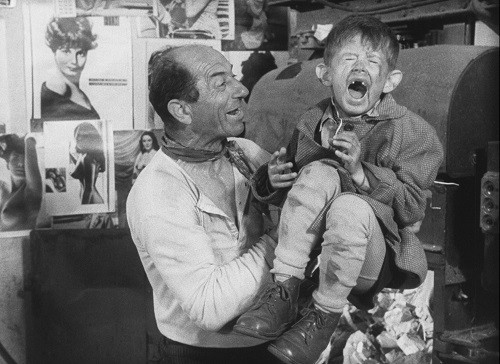 THE JUNK SHOP (Sběrné surovosti, 1965)
A work of nonstop invention set over the course of a single day at a paper recycling facility frequented by oddballs, including manager and aesthete Bohoušek, based on Bohumil Hrabal's life and a story from his book Pearls of the Deep.
THE JUNK SHOP (Sběrné surovosti, 1965)
A work of nonstop invention set over the course of a single day at a paper recycling facility frequented by oddballs, including manager and aesthete Bohoušek, based on Bohumil Hrabal's life and a story from his book Pearls of the Deep.
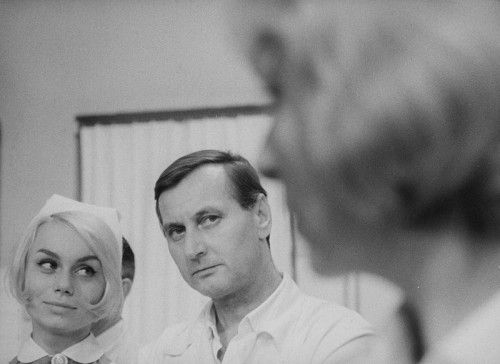 SIGN OF CANCER (Znamení raka, 1966)
A warped detective story that begins with a murder in a hospital, the investigation of which reveals rampant incompetence, the film’s implicitly critical depiction of a public service sector overloaded with underqualified Party stooges would land Herz in trouble with censors for what was not to be the last time. New subtitles!
SIGN OF CANCER (Znamení raka, 1966)
A warped detective story that begins with a murder in a hospital, the investigation of which reveals rampant incompetence, the film’s implicitly critical depiction of a public service sector overloaded with underqualified Party stooges would land Herz in trouble with censors for what was not to be the last time. New subtitles!
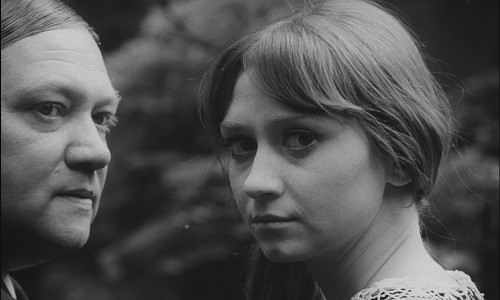 THE CREMATOR (Spalovač mrtvol, 1969)
Herz's masterpiece, in a new digital restoration released by Janus Films in North America, is set in 1930s Prague, where Nazi ideology hangs as thick as the charnel fumes over the crematorium run by the troubled Karel Kopfrkingl. This macabre and harrowing work of psychological and social breakdown was banned after its 1969 debut only to re-emerge and garner deserved praise twenty years later.
THE CREMATOR (Spalovač mrtvol, 1969)
Herz's masterpiece, in a new digital restoration released by Janus Films in North America, is set in 1930s Prague, where Nazi ideology hangs as thick as the charnel fumes over the crematorium run by the troubled Karel Kopfrkingl. This macabre and harrowing work of psychological and social breakdown was banned after its 1969 debut only to re-emerge and garner deserved praise twenty years later.
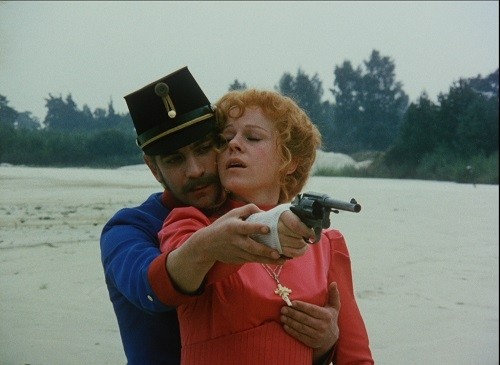 OIL LAMPS (Petrolejové lampy, 1971)
Contender for the Palme d’Or at Cannes in 1972, this early 20th Century period piece is set in a provincial town, Jilemnice, that’s riven by repressed desire and smoldering secrets. Herz plumbs deep within the psychology of his characters in this gripping and gorgeous film, which investigates the rot beneath the decoration and decorum of the Secession era. New subtitles!
OIL LAMPS (Petrolejové lampy, 1971)
Contender for the Palme d’Or at Cannes in 1972, this early 20th Century period piece is set in a provincial town, Jilemnice, that’s riven by repressed desire and smoldering secrets. Herz plumbs deep within the psychology of his characters in this gripping and gorgeous film, which investigates the rot beneath the decoration and decorum of the Secession era. New subtitles!
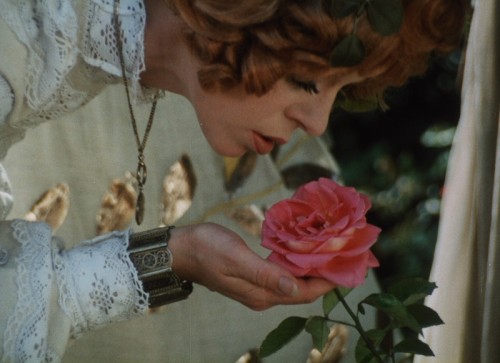 MORGIANA (1972)
A Gothic drama about two sisters, Klára and Viktorie—both played by Iva Janžurová, in an amazing double-role performance—are put at loggerheads when the sweet, vapid Klára receives the better part of their father’s sprawling estate and the love of the man that Viktorie adores, leading the spurned sibling to venomous thoughts of murder.
MORGIANA (1972)
A Gothic drama about two sisters, Klára and Viktorie—both played by Iva Janžurová, in an amazing double-role performance—are put at loggerheads when the sweet, vapid Klára receives the better part of their father’s sprawling estate and the love of the man that Viktorie adores, leading the spurned sibling to venomous thoughts of murder.
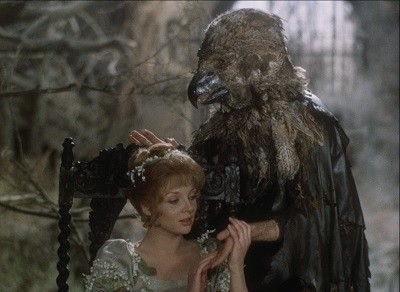 BEAUTY AND THE BEAST (Panna a netvor, 1978)
A tale you’ll know well—innocent girl presents herself as sacrifice to a cursed, freakish beast living in isolation, and learns to live with and love her captor—but turned into something very different in Herz’s morbid imagining. New subtitles!
BEAUTY AND THE BEAST (Panna a netvor, 1978)
A tale you’ll know well—innocent girl presents herself as sacrifice to a cursed, freakish beast living in isolation, and learns to live with and love her captor—but turned into something very different in Herz’s morbid imagining. New subtitles!
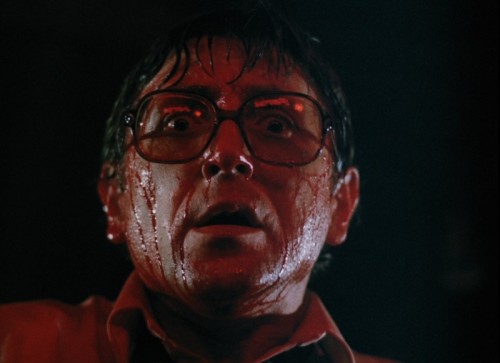 FERAT VAMPIRE (Upír z Feratu, 1981)
A satire on consumerism, a potent piece of anti-automobile propaganda, and perhaps the purest horror exercise that Herz produced. Starring the excellent Jiří Menzel (the Oscar winning film director) in the lead role of Dr. Marek. New subtitles!
FERAT VAMPIRE (Upír z Feratu, 1981)
A satire on consumerism, a potent piece of anti-automobile propaganda, and perhaps the purest horror exercise that Herz produced. Starring the excellent Jiří Menzel (the Oscar winning film director) in the lead role of Dr. Marek. New subtitles!
 CAUGHT BY NIGHT (Zastihla mě noc, 1985)
Conceived as a biography of Communist journalist Jožka Jabůrková, a victim of Ravensbrück, Herz went his own way, creating a nauseously stylized vision of hell on earth that is, with Wanda Jakubowska’s 1948 The Last Stage, one of only two fiction films made by a camp survivor about the experience.
CAUGHT BY NIGHT (Zastihla mě noc, 1985)
Conceived as a biography of Communist journalist Jožka Jabůrková, a victim of Ravensbrück, Herz went his own way, creating a nauseously stylized vision of hell on earth that is, with Wanda Jakubowska’s 1948 The Last Stage, one of only two fiction films made by a camp survivor about the experience.
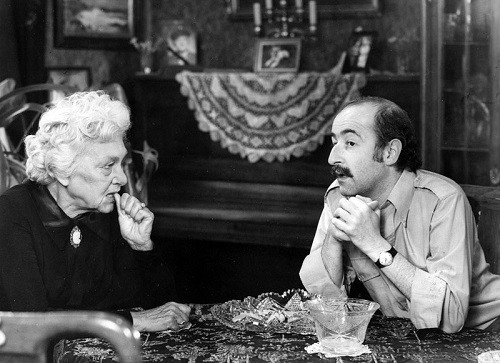 GOLDEN SIXTIES: JURAJ HERZ (Zlatá šedesátá, dir. Martin Šulík, 2009)
An illuminating portrait of Juraj Herz from a 27-part TV series about masters of the Czechoslovak New Wave.
GOLDEN SIXTIES: JURAJ HERZ (Zlatá šedesátá, dir. Martin Šulík, 2009)
An illuminating portrait of Juraj Herz from a 27-part TV series about masters of the Czechoslovak New Wave.
COMEBACK COMPANY
For press and booking inquiries:
To sign-up for our newsletter
email us with "newsletter" in the
subject line:
Comeback Company 2014
Design by Parallel Practice
© All rights reserved.